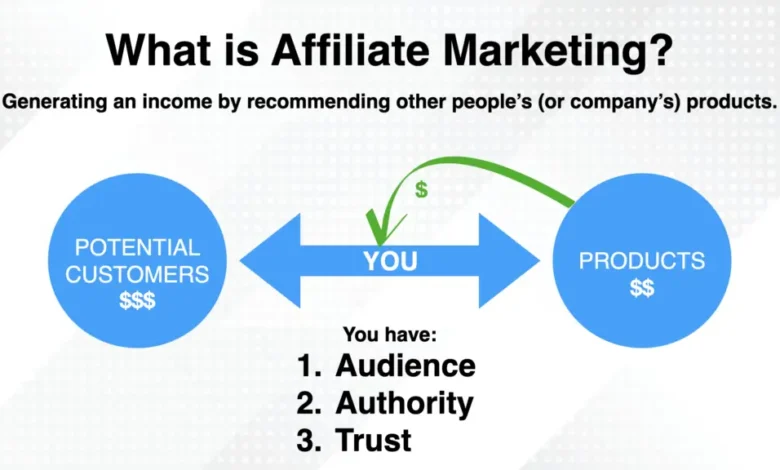How to Become an Affiliate Marketer

Introduction to Affiliate Marketing
Affiliate marketing presents a dynamic pathway for individuals to earn income by promoting products or services offered by other companies or marketers. Whether you’re looking to supplement your income, or transition to a full-time online business, understanding the essentials of affiliate marketing is crucial.
Understanding the Role of an Affiliate Marketer
At its core, an affiliate marketer’s role involves promoting third-party products through various channels, including websites, blogs, and social media platforms, and earning commissions from sales or leads generated from their efforts. This performance-based opportunity requires strategic planning, persistence, and a deep understanding of the target audience.
Step-by-Step Guide to Becoming an Affiliate Marketer
1. Choose Your Niche
Selecting a niche is vital as it focuses your efforts on a specific audience. A well-chosen niche should be something you are passionate about or have substantial knowledge of, which can make it easier to produce authentic and engaging content.
2. Research Affiliate Programs
Once you have your niche, research potential affiliate programs that offer products or services relevant to your content. Look for programs with a reputable history, favorable commission structures, and robust support for affiliates.
3. Build Your Platform
Your platform could be a blog, YouTube channel, podcast, or social media account where you can attract and engage with your audience. Ensure your content is high-quality, informative, and solves the problems or answers the questions of your target audience.
4. Create Quality Content
Content is king in affiliate marketing. High-quality, valuable content builds trust with your audience. Your content should not just pitch products but also provide insights, tutorials, reviews, and information that positions you as an authority in your niche.
5. Drive Traffic to Your Platform
Driving traffic involves utilizing search engine optimization (SEO), social media marketing, and email marketing. Effective use of keywords, engaging with followers, and optimizing your content for search engines are critical strategies for increasing your visibility and reach.
6. Optimize for Conversions
Optimizing your platform for conversions involves ensuring that the affiliate links are noticeable and that the calls to action (CTAs) are compelling. It also means tracking the performance of different strategies and adjusting based on what works best for converting visitors into customers.
7. Comply with Legal Requirements
It’s essential to understand and comply with legal requirements such as disclosing your affiliate relationships to your audience and adhering to privacy laws, which fosters transparency and builds trust.
Growing Your Affiliate Marketing Business
1. Scale Your Content Production
As your audience grows, scale up your content production to maintain and increase engagement. More content leads to more opportunities for affiliate sales.
2. Leverage Tools and Technology
Utilize tools for SEO, social media scheduling, email marketing, and data analytics to streamline your operations and enhance your marketing strategies.
3. Diversify Your Affiliate Portfolio
Diversifying your affiliate portfolio can help reduce risk and increase revenue potential. Promoting a range of products from different vendors ensures you are not overly dependent on one source.
4. Stay Updated With Industry Trends
The affiliate marketing landscape is always evolving. Staying updated with industry trends and adapting your strategies accordingly is crucial for long-term success.
Conclusion
Becoming a successful affiliate marketer requires dedication, strategic planning, and ongoing learning. By understanding your audience, delivering valuable content, and continuously optimizing and diversifying your strategies, you can build a sustainable income stream over time.




